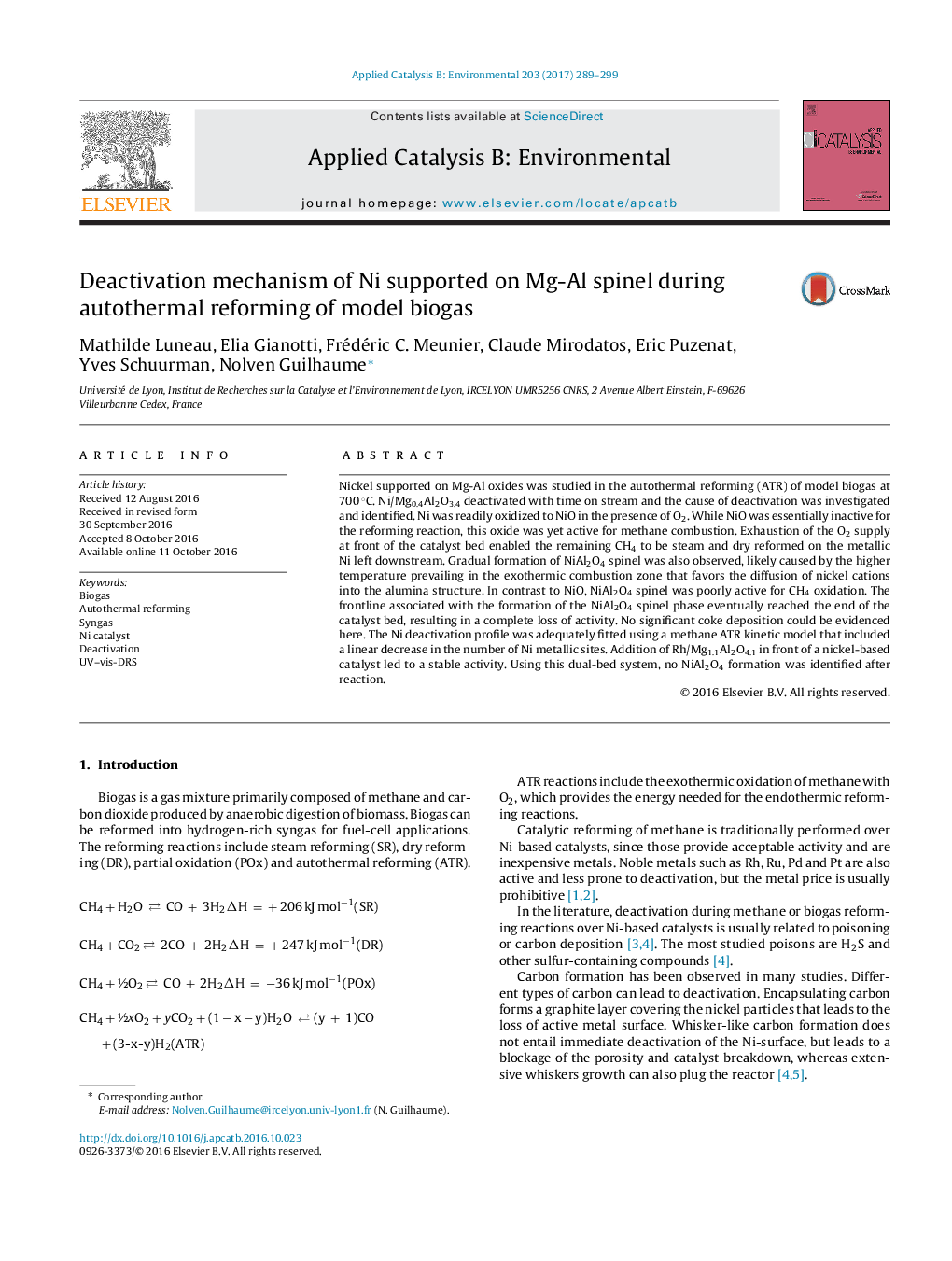| کد مقاله | کد نشریه | سال انتشار | مقاله انگلیسی | نسخه تمام متن |
|---|---|---|---|---|
| 6454459 | 1418817 | 2017 | 11 صفحه PDF | دانلود رایگان |

- The deactivation process of Ni/MgAlOx spinel during ATR of model biogas is assessed.
- A methane combustion zone creates a hot spot and leads to NiO formation.
- NiO reacts with the support at high temperature forming inactive NiAl2O4 spinel.
- The Mg/Al ratio in the support strongly affects the Ni deactivation rate.
- A dual catalytic bed prevents Ni oxidation and deactivation.
Nickel supported on Mg-Al oxides was studied in the autothermal reforming (ATR) of model biogas at 700 °C. Ni/Mg0.4Al2O3.4 deactivated with time on stream and the cause of deactivation was investigated and identified. Ni was readily oxidized to NiO in the presence of O2. While NiO was essentially inactive for the reforming reaction, this oxide was yet active for methane combustion. Exhaustion of the O2 supply at front of the catalyst bed enabled the remaining CH4 to be steam and dry reformed on the metallic Ni left downstream. Gradual formation of NiAl2O4 spinel was also observed, likely caused by the higher temperature prevailing in the exothermic combustion zone that favors the diffusion of nickel cations into the alumina structure. In contrast to NiO, NiAl2O4 spinel was poorly active for CH4 oxidation. The frontline associated with the formation of the NiAl2O4 spinel phase eventually reached the end of the catalyst bed, resulting in a complete loss of activity. No significant coke deposition could be evidenced here. The Ni deactivation profile was adequately fitted using a methane ATR kinetic model that included a linear decrease in the number of Ni metallic sites. Addition of Rh/Mg1.1Al2O4.1 in front of a nickel-based catalyst led to a stable activity. Using this dual-bed system, no NiAl2O4 formation was identified after reaction.
137
Journal: Applied Catalysis B: Environmental - Volume 203, April 2017, Pages 289-299